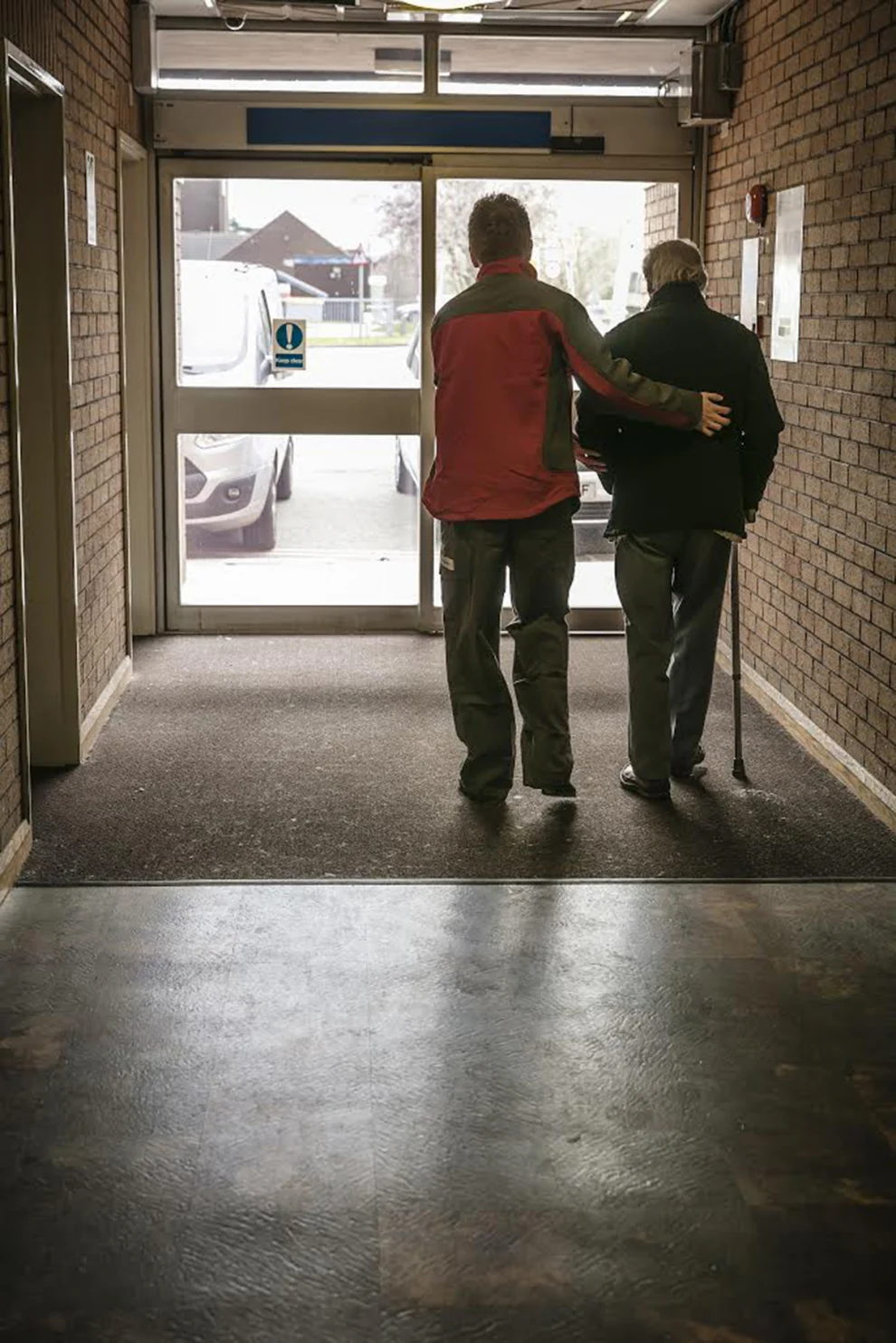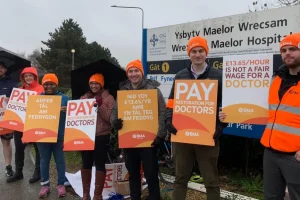A VALUED service that has been supporting patients and staff at Emergency Departments across Wales since 2018 is set to continue.
The Welsh Government and NHS Wales scheme, delivered by British Red Cross staff and volunteers, has helped almost 390,000 patients since it first started as a three-month pilot in December 2018.
British Red Cross teams provide support in 12 Welsh Emergency Departments, working very closely with NHS staff to prioritise patient pastoral care needs. That could mean sitting with patients and family members while they wait, making sure patients have a drink and something to eat when they need it, or keeping them warm with blankets. During Covid, they also assisted patients to stay in touch with loved ones when family members were not able to join them in the Emergency Department and served meals to hard-working hospital staff.
Red Cross support workers help patients by listening to their worries, collecting medication, keeping people company while they go to have an X-ray and comforting people who are bereaved. The time support workers spend with people means they can also explore underlying issues, such as whether someone has meaningful connections with other people in their community. This gives doctors and nurses peace of mind that problems will be picked up, and often helps identify complicated situations where someone’s medical and social needs are entwined. Addressing medical and social needs together can help prevent someone from going back to hospital unnecessarily.
Kate Griffiths, director for Wales at the British Red Cross said: “The British Red Cross has worked in partnership with the NHS in Welsh Emergency Departments ever since the service started, to offer extra support for patients and staff.
“We are committed to supporting NHS staff in the Emergency Department and to improving the experiences of patients, working together to make what can sometimes be a really anxious time in a person’s life a little more bearable.
“The difference made through simple, kind acts cannot be underestimated. Red Cross staff and volunteers are there for reassurance and support, empowering people to take their first steps on the road back to independence.
“We believe the role of the voluntary sector is key in helping health and care services to support patients, and will continue to work alongside NHS colleagues in Emergency Departments, relieving pressure on the system and giving peace of mind to doctors and nursing staff that patients are being cared for as they move between home and hospital.”
Red Cross teams also take patients home, helping them settle in and spot problems like trip hazards or blown lightbulbs, that could cause another hospital visit. Since the service started, Red Cross workers have taken 9,233 patients home from hospital.
Welsh Government has reaffirmed its commitment to place this service on a more sustainable footing by making £2million available to secure a year-long contract for the British Red Cross to continue to deliver the Emergency Department Wellbeing and Home Safe service at all sites across Wales.
Welsh Government has funded this service since it was first introduced in December 2018 and will continue to do so for the duration of the 12-month contract, after which each individual health board will have the option to extend the contract for a further 12 months at their own cost.
Welsh Government Health Minister Eluned Morgan said: “I am pleased to support British Red Cross in the continued delivery of this service, which has proven hugely beneficial to patient and staff well-being.
“The service has received widespread praise and positive feedback since it was launched and has been shortlisted for a number of national awards.
“This service was first introduced to help ease pressures during the winter period, but has proven invaluable over the past 15 months.
“Not only has it provided vital emotional and social support for patients during what has been an especially challenging time, it has also improved transportation links home and helped reduce length of stays in hospital.”


















Add Comment